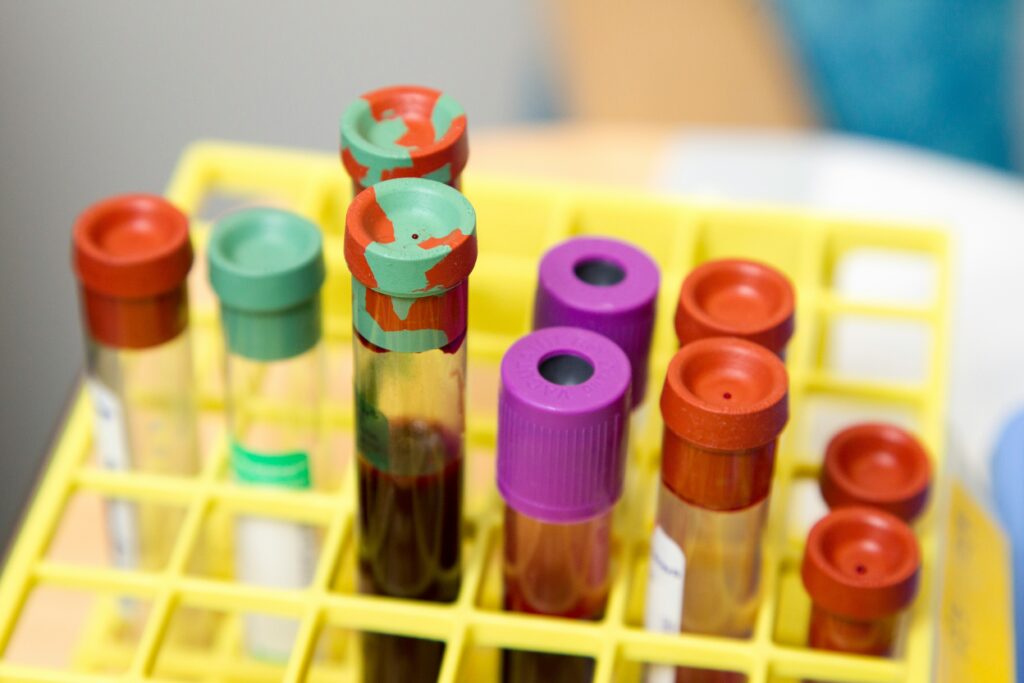Triglycerides are a form of fat (lipid) in your blood. Triglycerides are used to produce and store most of the energy in your body, but high triglyceride levels can cause serious health problems. In this blog, we will look at what triglycerides are, their importance to your health, the reasons behind high levels of triglycerides, the risks associated with them, and how to manage and prevent high levels of triglycerides.
What Are Triglycerides?
Triglycerides are the most prevalent type of fat found in your body. Full-length fatty acids that attach to glycerol molecules are called “triglycerides,” due to the fact that their structure has three fatty acids attached to the glycerol. When you take in more calories than your body can use for fuel, the surplus is converted to triglycerides and stored in fat cells (ADIPOSE TISSUE) for later use. If your body requires energy, these triglycerides are released by hormones as fuel.

Normal Triglyceride Levels
Triglycerides are tested with a blood test and usually divided into the following categories:
Normal: Less than 150 mg/dL
Borderline High: 150 to 199 mg/dL
High: 200 to 499 mg/dL
Extremely High: 500 mg/dL and more
Normal triglyceride levels are important for health.
Causes of High Triglycerides
There are a number of things that can lead to high triglycerides:
Diet — A diet that is high in sugars, refined carbohydrates, and unhealthy fats can increase triglycerides. White bread, pastries, sugary beverages: these foods are one of the most common suspects.
Obesity: Excess body fat, particularly around the abdomen, is associated with higher triglycerides.
Sedentary behavior: Absence of exercise may increase body weight along with the triglycerides level.
Alcohol: Excessive drinking can also raise triglycerides significantly because the liver converts alcohol into triglyceride.
Medical conditions: Some illnesses, such as diabetes, hypothyroidism and kidney disease, can also increase the levels of triglycerides present in the blood.
Drugs: Few medications can increase triglycerides, like steroids and specific diuretics.
Family history: If your parents or siblings had high triglycerides, or if you have genetic disorders that affect how your body processes fat, you may also be at an increased risk.
Dangers of elevated triglycerides
High levels of triglycerides can cause major health problems, such as:
Cardiovascular Diseases: Elevated triglycerides can increase your risk of developing cardiovascular diseases, including heart attacks and strokes. High levels can lead to hardening of arteries.
Pancreatitis: If your triglycerides are extremely high (typically over 500 mg/dL), it can result in pancreatitis, an inflammatory disorder of the pancreas that causes excruciating abdominal pain and other complications.
Metabolic syndrome: Elevated triglycerides are one of the traits of metabolic syndrome, a group of disorders including blood pressure, blood sugar, and abdominal fat that increase your risk of heart disease, diabetes, and stroke.
Diagnosing High Triglycerides
Triglycerides are measured with a simple blood test typically done after fasting for 9 to 12 hours. This test may be part of general check-ups, especially if you have risk factors for elevated triglycerides.
Managing High Triglycerides
If your triglycerides are high there are many effective ways to lower them:
Dietary Changes
Cut There: Reduce development of mixed refreshments and this, porash and another overstated carbo. Opt for whole grains instead.
Increase Healthy Fats: Replace saturated with unsaturated fats such as olive oil, avocado, and nuts and reduce saturated and trans fatty acids (e.g., trans fatty acids from fried and processed foods).
Higher Omega-3 deficiency: Omega-3 rich-food including fatty Fish (salmon, mackerel), flaxseed, and walnuts can reduce triglyceride levels.
Fiber Benefit: Triglycerides in your bloodstream and gout-friendly fruits and vegetables (along with whole grains), in particular, can really help reduce these levels.
Regular Exercise
Fitting in some activity here and there can help reduce triglycerides and cholesterol and improve overall heart function. Get at least 150 minutes of moderate intensity — such as brisk walking, swimming or moving with pedaling — aerobic exercise each week.
Maintain a Healthy Weight
The biggest change can come from losing excess pounds. Even losing a little weight, like 5–10% of their starting weight, can have a positive effect.
Limit Alcohol Consumption
Avoid alcohol or drink it in moderation. In sensitive people, alcohol can cause triglycerides to skyrocket.
Medications
To some extent, lifestyle changes are not sufficient to reduce the level of triglyceride. Your doctor may recommend medications, such as fibrates, niacin, or omega-3 fatty acid supplements, to help reduce your levels.
Preventing High Triglycerides
Here are some dos and don ts that you can adopt to avoid developing low triglycerides levels:
Consume a nourishing diet, emphasizing whole and nutrient-dense foods and minimizing processed and sugar-rich foods.
Get Moving: Exercise is critical to weight management and triglyceride control.
Keep an eye on your weight: Track your weight & adjust your diet and activities whenever it varies.
Regular Health Checkups: Regular health checkups will help in tracking your triglyceride levels and overall health status.
Final Thoughts
Being aware of triglycerides and how they can facilitate or hinder your health condition can help prevent, and even alleviate high levels of them. In this way, you can follow some steps proactively to keep in achieving healthy triglycerides levels that can help you to avoid heart disease and other complications through selective physiological choices, including things like activity level, diet, and some health measurements which can, again, be defined in the selective type of formulation — all of which are time-honored predictors of performance. If you have specific concerns about your triglycerides, speak with your doctor first. Keep in mind that even the smallest of changes can greatly affect your health in the long run!

